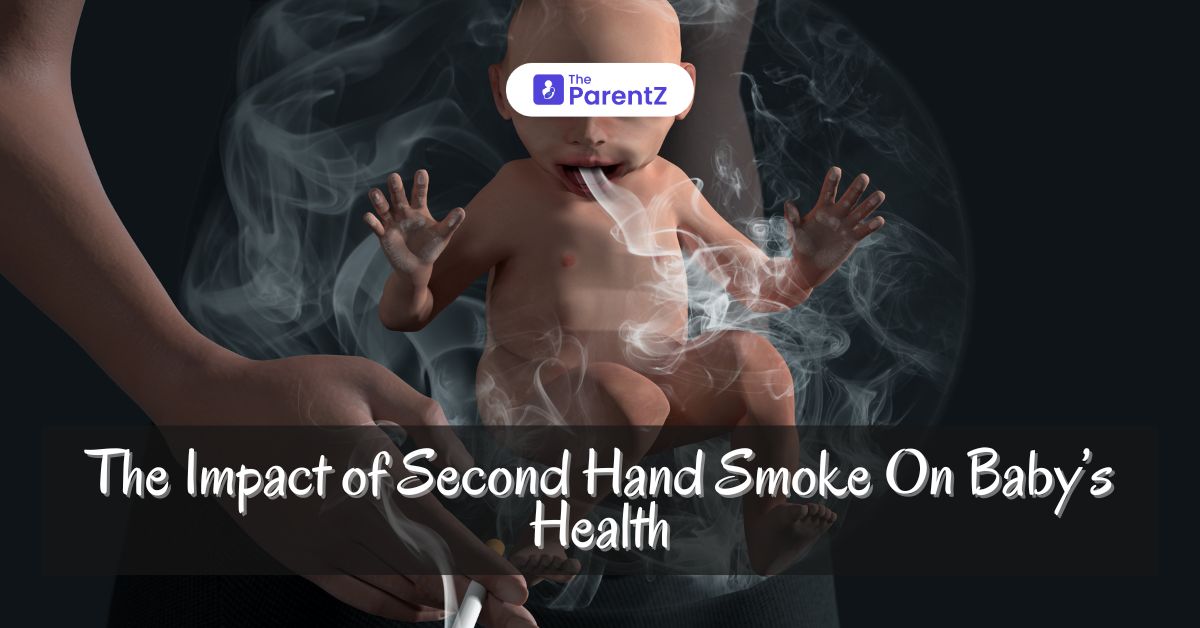Ever noticed someone puffing away on a cigarette nearby? You must not have seen it immediately.
But do you know those wisps of smoke could have a detrimental impact on your baby’s delicate lungs? This is what is called second-hand smoke, or, in simple words, passive smoke.
According to the Centers for Disease Control and Prevention, in the U.S. alone, more than 400,000 infants are exposed to second-hand smoke at home. Furthermore, studies have shown a significant impact of passive smoking as it poses a higher risk of chronic illnesses such as respiratory diseases, asthma, or even sudden infant death syndrome (SIDS). In fact, another study showed that infants who are exposed to smoke have a 50 percent higher risk of SIDS.
Therefore, it’s important to understand how secondhand smoke can pose some severe risks, especially for babies.
Read this article to learn about the impact of passive smoking on a baby’s health and some effective tips for protecting your baby.
Impact of smoke on babies
Since the little bodies of babies are still in their developmental phase, which makes them more susceptible to the detrimental impact of secondhand smoke, Here’s how they can get impacted.
Stunted Lung Development
Did you know that second-hand smoke contains about 7,000 chemicals, of which 70 can cause cancer? And for a baby, it can make things even worse for their body as they are more exposed to the risk of developing chronic illnesses at a later stage in their life.
Risk of Ear Infections
Smoke is known to irritate the Eustachian tube, which is why second-hand smoke can even pose a threat to your baby’s ears. The effect is such that it leads to fluid buildup and, hence, painful ear infections. Moreover, you’ll be surprised to know that ear infections can also impact speech development and hearing in your kids.
Increased Risk of Allergies and Asthma
Severe studies show that babies who are exposed to secondhand smoke are at an increased risk of developing allergies or chronic illnesses like asthma. And even though they were not born with such issues, smoking can easily trigger such health complications.
Slower Cognitive Development
Lastly, second-hand smoke can also hamper the brain development of babies. In fact, kids who are exposed to smoke for a longer period usually have lower scores in reading, math, and reasoning. Ultimately, exposure to smoke makes things unlikely to work as efficiently as they should.
Tips To Protect Your Baby From Second-Hand Smoke
Here are some effective tips to protect your baby from the harmful impact of second-hand smoke.
Smoke-Free Space At Your Home
If someone at your home smokes, it is best to create a smoke-free space in your home. while also ensuring they smoke outside the home because second-hand smoke may linger for a long time in the air and surfaces.
Cleaning Third-Hand Smoke
Third-hand smoke refers to the residue that gets left behind and sticks to furniture and other surfaces. This residue stays for a long time, even when the cigarette is out. Therefore, regularly cleaning the surfaces that come into contact with the baby is crucial to ensuring your baby’s safety.
Install Air Purifiers
Air purifiers are a great way to filter out any harmful or smoking particles from the air to ensure you and your baby breathe in fresh and clean air. Moreover, air purifiers can significantly reduce the ill effects of hand smoke on your baby.
Overall, second-hand smoke can have a long-term impact on your baby. Therefore, it is important to understand the potential consequences and how to protect your baby against them.






Be the first one to comment on this story.